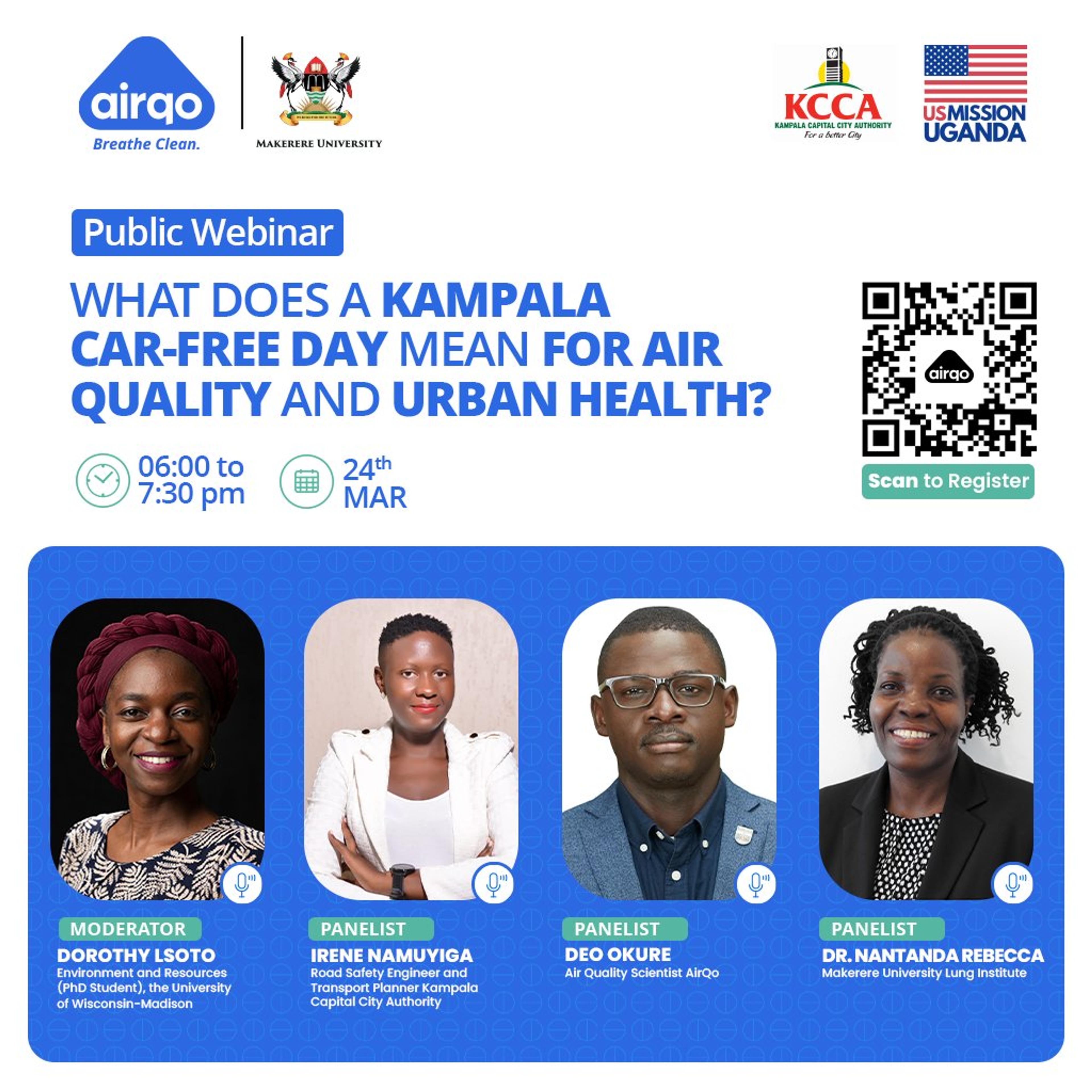Kampala’s car-free day and implications for air quality and urban health
24th March 2023
On March 26, Uganda held its first Car-Free Day in Kampala themed ‘road safety and air quality’, with a major objective to create awareness about safe streets for Kampala City and suburb dwellers.
A car-free day has strong benefits for urban air quality, particularly by raising awareness of green and sustainable mobility alternatives such as mass transport, and non-motorized means.
Snapshot of the presentation (Credit: AirQo)
The air quality partners in Uganda (KCCA, U.S Embassy and AirQo) convened a public discourse through a public webinar held on Friday, March 24, to discuss the implications of car-free days. My contribution was to give a lecture on the ‘Progressive evidence on transport air pollution in Kampala: Lessons from tangible gains.’
I was able to shed light, firstly o the eveindec of transport air polution and the tangible gains from the unintended consequences of COVID-19 lockdown restrictions.
The car-free day will add to the country's ongoing aspirations for green mobility alternatives through transforming the city's transport infrastructure. In 2012, Uganda adopted the Non-Motorized Transport (NMT) policy and the design of the pilot NMT corridor from Namirembe Road to Luwum Street started.
The corridor wascompleted in May 2020, during the first Covid-19-induced lockdown to promote co-existence of all road users and reduce air pollution in a congested city whose roads are largely built for vehicles.
The scale of opportunity that comes with a car-free day in a city like Kampala with a huge burden of transport air pollution is phenomenal. Follow the AirQo website for more details about the car-free day webinar.
End
